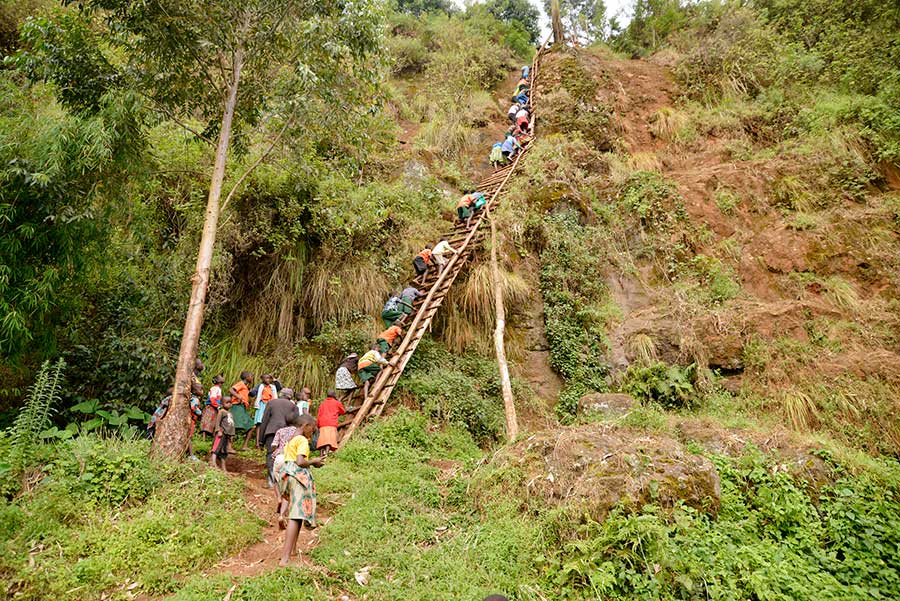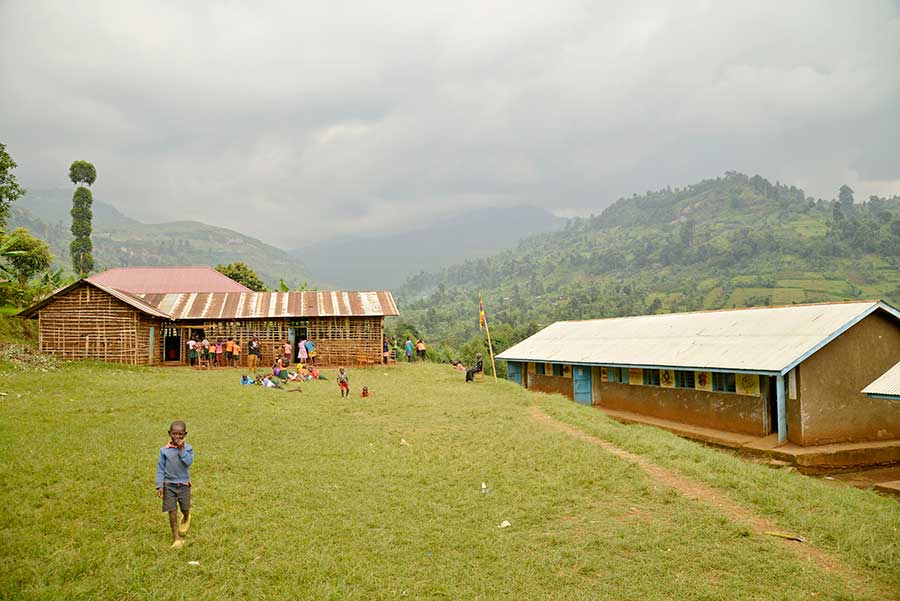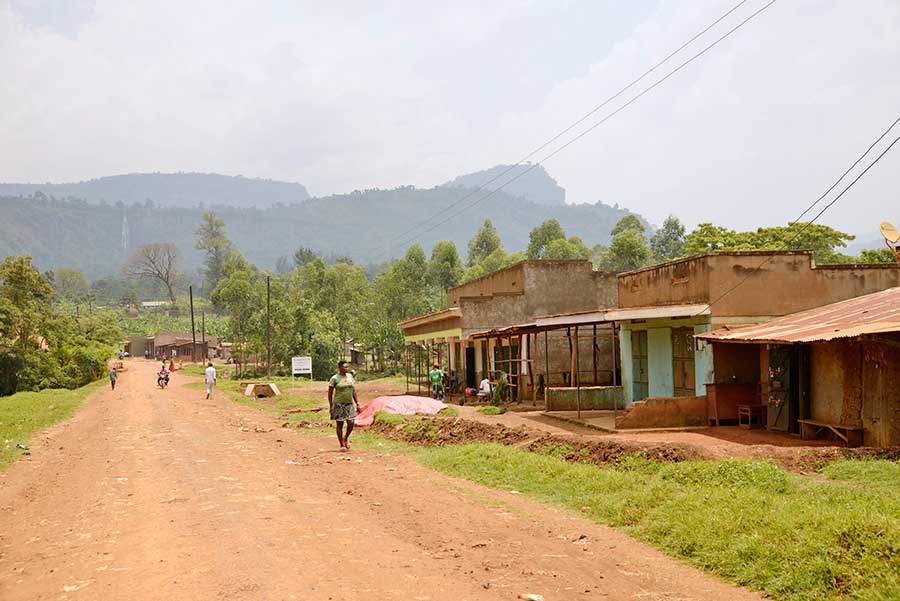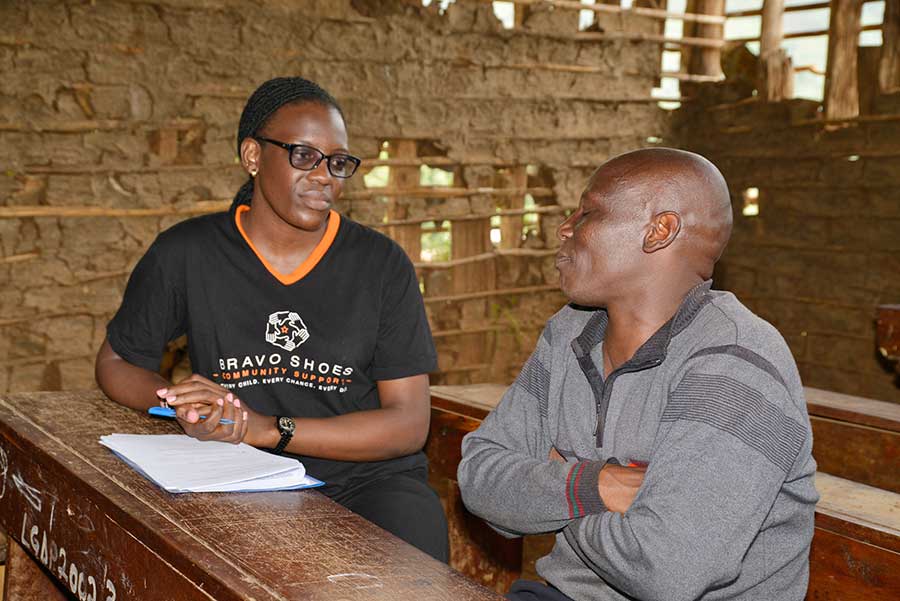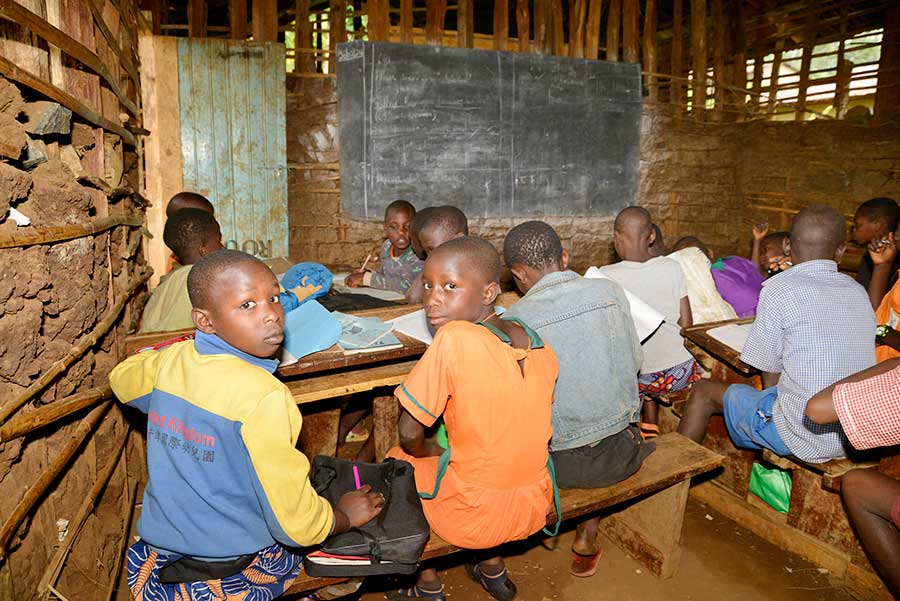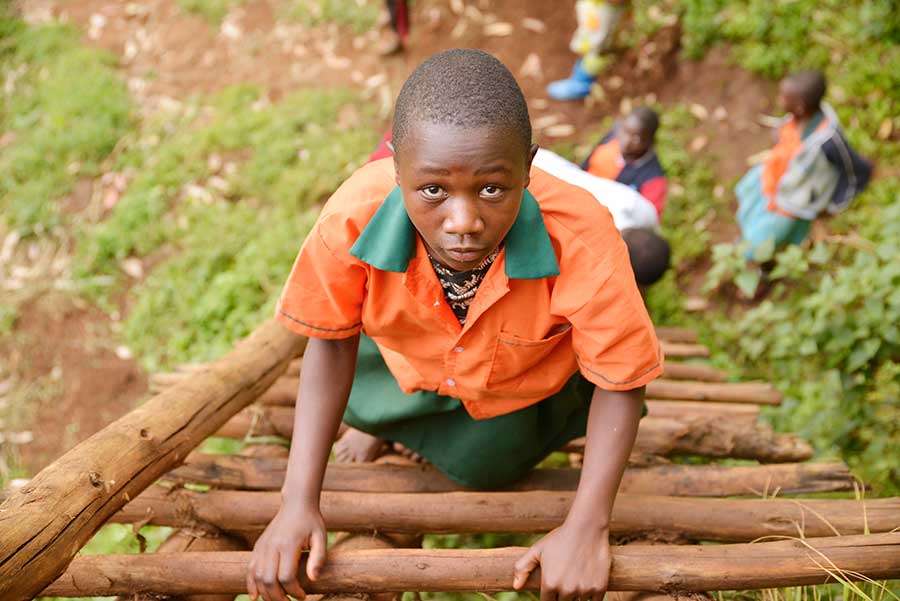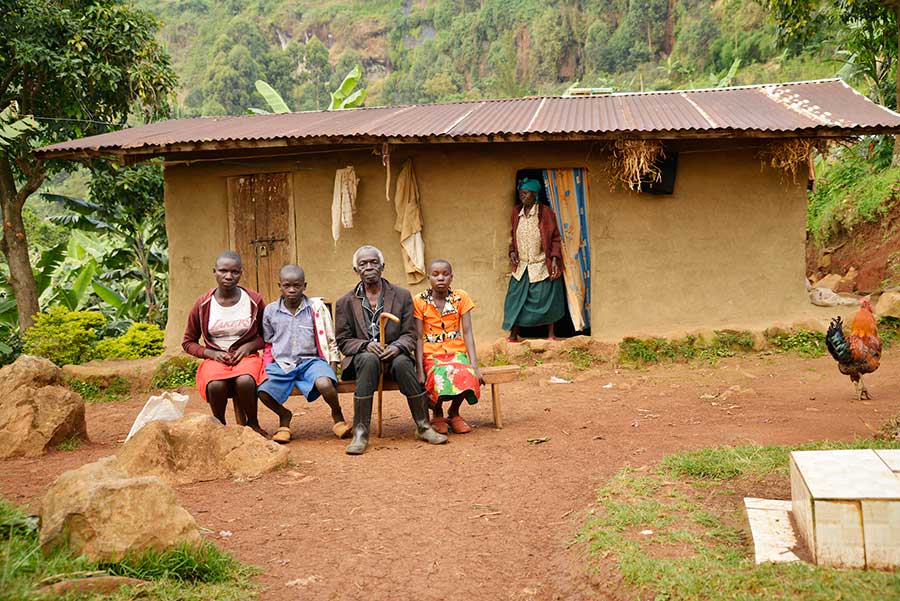In their hearts, ambitious aspirations take root. Some envision themselves as future healers, aspiring to don the white coat of doctors, while others harbor dreams of imparting knowledge and shaping minds as great teachers and lawyers.
Fueled by an unwavering drive, they are determined to pursue the finest education available, propelling them closer to the realization of their lofty goals but they have huge barricades to deal with.
Surrounded by towering cliffs in the mountainous of Buwokadala Parish, Bumasobo Sub County in the district of Bulambuli Elgon region, there is a young girl named Angela Muzaki.
Muzaki was born 8 years ago to Evelyn Namusoba and Francis Woniala who passed away when she was still an infant may their souls rest in peace (RIP) but now being raised by her aging grandfather the 64-year-old Stephen Masoboni.
The village of Muzaki’s birth is nestled amidst the rugged stiff mountains and isolated from the luxuries of modern civilization.
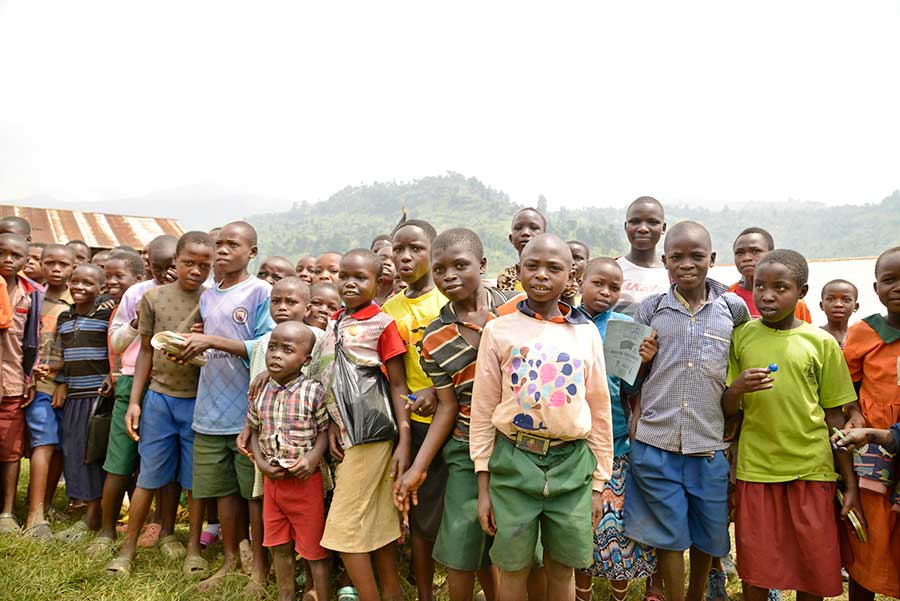
Education is a distant dream, surviving on unclean rocky waters, and health services an unattainable luxury. Despite these hardships, Muzaki’s spirit is as unyielding as the mountains that cradled her village.
To the young girl, the towering cliffs are her playground, and the unpredictable rains are her constant companion. However, just like the whole community and other children, she learns to navigate the treacherous mountain paths with ease, acquiring skills that were borne out of necessity.
As Muzaki grows older, she has to attend school and she would not look further apart from Wokadala Primary School, a school with only male teachers. The school whose challenges persisted and remained the same, clean water remained scarce, and the health of the villagers remained fragile.
As Muzaki grows up, she is most likely to face similar challenges as any other girl in the same cliffs they call home, unfortunately, many girls are attending school at the time when they experience their first menstrual period.
“When I grow up, I want to become a teacher, it is my dream,” said one of the girls in primary four at Wokadala Primary School. However, she’s not certain whether her dream will come true because back home, the two of her sisters once they clocked 18 years, were forced either to leave home or get married.
She says she finds difficulty in acquiring scholastic materials, hygiene, and food when she is coming to school.
Wokadala enrolled over 880 students however, by 2023, only 756 learners managed to complete with most of the girls dropping out.
According to the Headmaster Willy Wanambwa, the enrollment is most affected by natural challenges like the unpredicted rains which interrupt learners from coming to school due to impassable routes in the cliffs.
“The rains have no season, they come abruptly but we predict January – February as the only months with a dry spell. The school is faced with other challenges beyond the rains like feeding because of poverty. Parents fail to raise a small fee requested to feed the learners. Very few here eat at school,” he said
Wanangwa’s dilemma is beyond that, the learners come from hard-to-reach areas and they struggle to reach school when it rains while others simply drop out of school and others come late.
He says that the school has no female teachers and the school struggles to maintain the available number of teachers due to limited resources available to run the school.
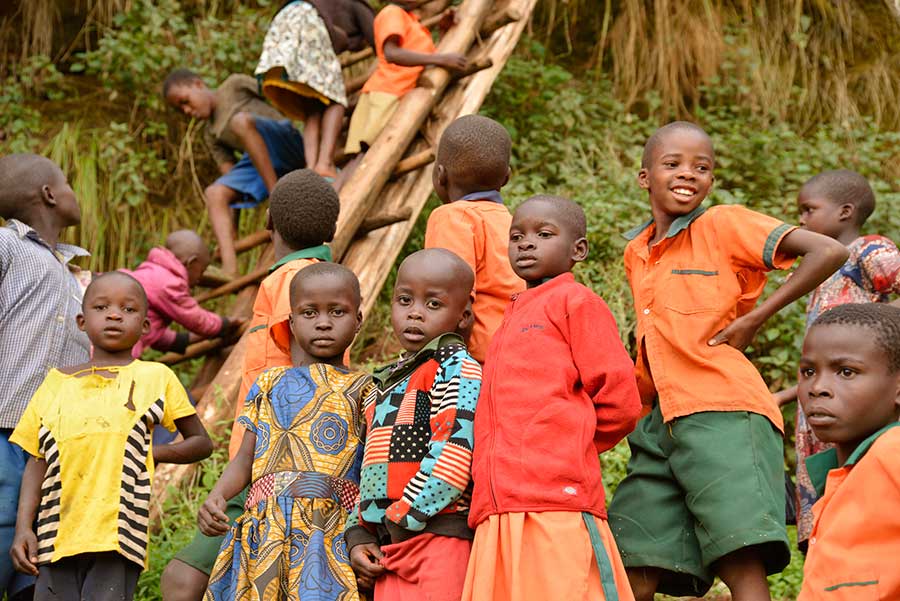
“We only have 8 teachers residing in the neighborhood, some of the structures are very old and we have nowhere to place the learning materials for young learners. We only have one block with 4 permanent classrooms,” he pointed.
Without a library, staffroom, and no access to clean water, the teachers say that this affects the learning process of the learners in this school.
“We have a problem of the water source, even if it rains, we force our children to go and fetch water in far areas. If we can adopt water harvesting because this affects their performance in school,” said Teacher Woniala Justane the Primary four teacher.
Former Head Teacher Angella Nandutu who joined the school in 2012 and was elevated as the head teacher from 2016 – 2021 before she was transferred says the issue of school dropouts especially to the girl child has been too much especially when the school has no female teachers as role models apart from other natural factors.
“When I joined, we were two female teachers but most of the female teachers fear to work in that place, because of it’s a hard-to-reach area and near the trading center. That makes the girls vulnerable because they have no female role models to guide and counsel them,” she said.
Survey Finds Shocking Revelations
A survey by Bravo Shoes Community Support Organisation (BSC) research team on the need assessment done at Wokadala Primary School in Bulambuli district. The findings reveal that classes for lower primary run from 8:00 AM to 1:00 PM, extending to 4:30 PM for upper primary. However, challenges such as the absence of meals and safe drinking water, coupled with the difficult accessibility of the school, significantly impact both students and teachers.
The assessment was conducted on February 20, 2024, and aimed to provide a comprehensive understanding of the school’s strengths and weaknesses also points at high levels of class absenteeism due to child labor.
The survey which focused on the age range of 11-16 years in classes P.3-P.7 on both males and females observed declining enrollment throughout the term indicating potential issues with pupil retention or access to education.
“Gender imbalance with more male pupils than females suggest unequal opportunities or barriers for girls. The absence of female teachers limits role models and perspectives for students. A potential need for additional teaching staff to address student-teacher ratio or subject expertise,” the survey pointed
The survey revealed significant challenges at Wokodala Primary School, yet it has also uncovered a dedicated school community striving to provide education under difficult circumstances. While infrastructure limitations, resource scarcity, and limited teacher representation require immediate attention, the existing commitment of the staff and the potential for collaboration present an opportunity for positive change.
Bulambuli District Officials Decry Terrain
According to Christine Namwau, the District Community Development Officer (DCDO), the district comprises 54 government-aided schools, aligning with the government’s policy to establish a school in each parish. Nevertheless, out of the 122 parishes in the district, only 54 currently have a school.
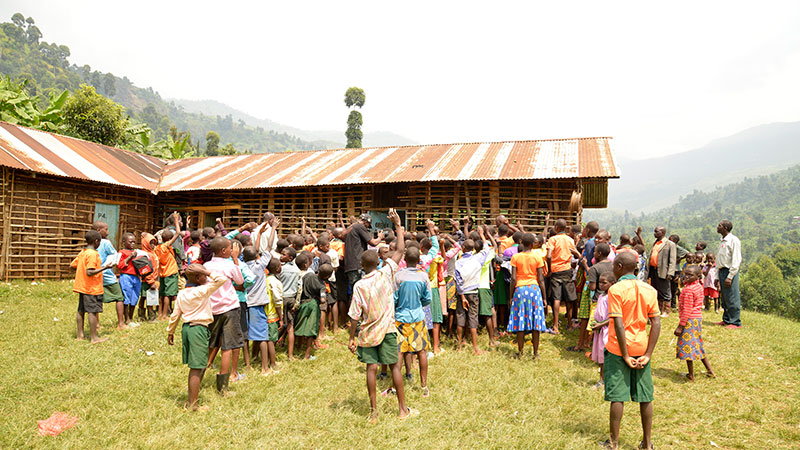
Namwau highlights a concerning trend in education, noting that 50% of students who initially enrolled in Primary One do not complete the Primary Leaving Exams (PLE). She attributes this dropout rate to a combination of natural factors and the challenges faced by parents, who may be either hesitant or financially constrained in providing for their children’s education.
“It is not because of the children’s making or their parents but natural factors, children at a young age especially girls are the most victims.
The number of dropouts keeps growing as the primary ladder goes up, and there are other issues like not providing food. The parents’ role is the provision of scholastic materials and food but most parents think everything is entirely free,” she said.
On the plight of girls. Namwau pointed out that girls are insecure in an environment where there are no female role models which creates an unhealthy environment for young girls in the puberty stages.
“We have schools with no female teachers and male teachers cant entirely handle girls in mistral stages, unfortunately, some girls had to drop out of schools because they don’t have sanitary pads yet they need someone to encourage them,” she explained.
She added that in Bulambuli district needs partners to sensitize men and women on matters that directly affect child development and also address these issues on top of health services. She mentioned other cases like early marriages, and lack of vocational institutes to help in skilling among others.
“As a district, we don’t have a single vocational skilling school, the early drop outs are very high at the ages of 16, 17, and 18 going for early marriages, at the stakeholder level, we have a good will of partners like Bravo Shoes Community Support Organisation and we believe the partnership will take us very far.”
Charles Gidoi, the Principal Assistant Chief Administrative Officer (CAO), extended a warm welcome to BSC and emphasized that the primary challenges faced in the area revolve around access roads for children to reach their schools and health facilities. He further noted that children currently navigate cliffs through makeshift methods to access these crucial locations.
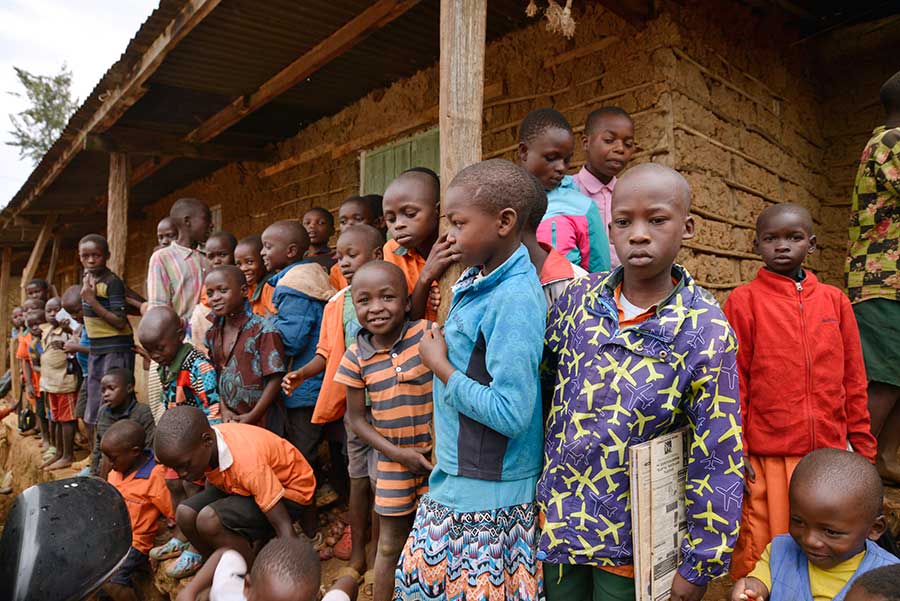
“Children struggle to go to school and parents also struggle to reach markets to sell their merchandise after it rains. We are grateful you have decided to have a memorandum of understanding (MOU) with us. As a district, we also have things to deal with,” he said.
The district’s key economic activities are mainly agriculture in main crops like coffee, banana, maize, onions, horticulture, tomatoes sunflower among others.

